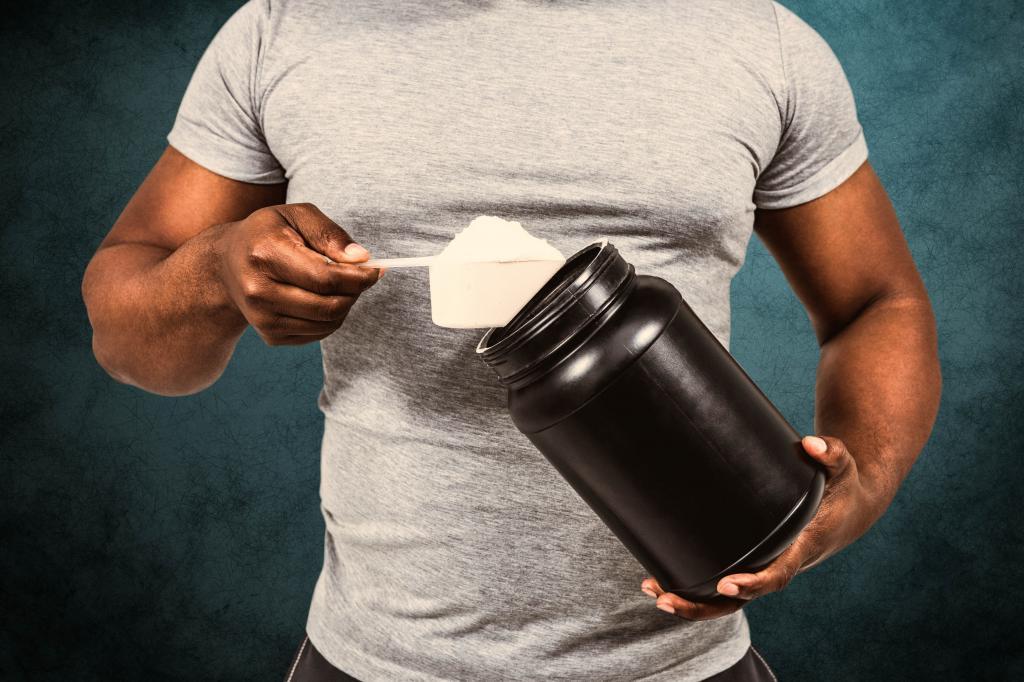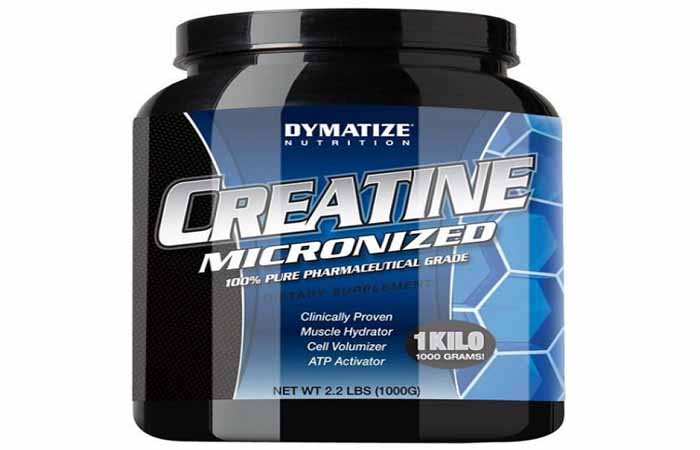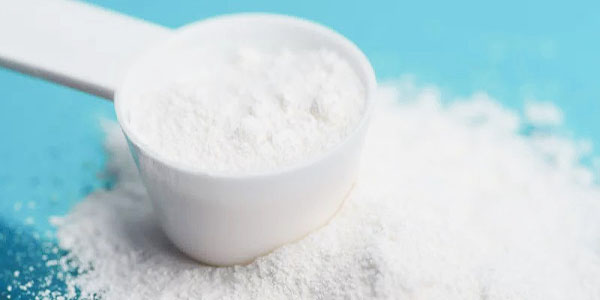Everything you need to know about creatine

creatin is one of the most used supplements in the world of bodybuilding, sometimes much more than protein powder. There are numerous evidence-backed studies supporting the efficacy of creatine supplementation (some perhaps a bit exaggerated). For the majority of the population, including elite bodybuilders and untrained individuals, creatine supplementation increases muscle mass and improves anaerobic and aerobic performance.
What is creatine and what does it work for?
I will explain a little what creatine is scientifically since it is the only way to understand what it is for …
Creatine is a natural component of meat, mainly in red meat. Creatine is made naturally in the body through the amino acids glycine, arginine, and methionine. This process takes place in the kidneys, liver, and pancreas.

About 40% of the body’s creatine stores are free creatine (Cr), while the remaining 60% is stored in the form of creatine phosphate (FC). A normal person only processes 2 grams of creatine per day and replaces that amount through food intake and manufacturing in the body.
Creatine is used for the resynthesis of ATP. (ATP) or adenosine triphosphate, is the “power” that handles muscle energy. When a muscle contracts, the bonds of the ATP molecule split, producing ADP (adenosine diphosphate). The energy released by breaking this bond enhances muscle contraction.
When ATP is depleted within the cell, the cell can no longer contract. There are several methods by which the body rebuilds ATP. The fastest method, without oxygen, is via (FC). Creatine phosphate breaks down the phosphate part of the molecule.
Creatine supplementation increases Cr and FC in the muscle, allowing a greater capacity to regenerate ATP. In other words, creatine enhances the muscle’s ability to maintain energy production during short periods of high intensity exercise. The periods are short because a cell’s ability to store FC is limited, therefore the body will quickly move to other methods of ATP replacement.
Benefits of creatine for bodybuilding
1. Delays fatigue:
It allows us to better withstand hard exercise, since it masks the effect of lactic acid, especially in short and intense activities.
2. Increase in muscle mass and strength:
Intramuscular creatine is stored, causing muscle cells to absorb water (cellular hydration). The access of water to the interior of the cell together with creatine and glycogen leads to an increase in the volume of the muscle fiber, as well as in potential strength. A larger diameter of the cross section increases muscle mass and therefore more strength. When creatine monohydrate is present, muscle cells operate more efficiently and increase in size .
Another advantage of their rapid operation is that they can synthesize more protein more diligently, and the acceleration of protein synthesis allows muscle cells to develop more than would be possible without a creatine supplement. The main causes of overtraining is the lack of intramuscular creatine, slowing down the resynthesis of ATP. A contribution of creatine ensures that this does not happen. Bodybuilders are encouraged to use creatine because it can provide muscle energy, muscle strength, and help reduce fat.
3. Muscle hypertrophy:
The sustained contribution and consequent increase in volume due to the access to accompanying water end up forcing the muscle fiber to adapt to this situation and therefore physiologically requiring an increase in the synthesis of new muscle proteins that adequate volume and size.
Studies show that taking creatine can run longer and with greater intensity. Creatine has been observed to produce a slight increase in the percentage of type II muscle fibers. Theoretically, if we could increase the percentage of this type of fiber, we would have more capacity to produce a great performance of strength and power, in relation to the other type II and type I fibers. of the potential for the growth of muscle fibers.
4. Improves anaerobic exercise :
Intense and intermittent exercise, of the explosive type, is one that requires ATP and PCr. Sprinters, powerlifters, and bodybuilders can all benefit from creatine supplementation, which boosts their performance.
How to take creatine and doses
Most studies on creatine supplementation have used creatine monohydrate , the form of creatine attached to a molecule of Water. Some studies suggest that the combination of creatine and carbohydrates increases the absorption of creatine. ( I advise taking it with some juice 30 minutes before training )
The most common protocol used since 1990 was to perform 4 doses of 5-7 grams per day for 5 days as a loading phase. That is, about 20-25 grams per day divided into 4 doses. But over the years it has been seen that this loading phase is useless and almost all the creatine is excreted in the urine.

According to current studies, the key to effective creatine supplementation and to be able to fully fill the deposits is to take small amounts and delay intestinal absorption, this gives creatine more ballots to end up in the muscle than in the urine.
That is why it is recommended to take only 2-5 grams a day, 30 minutes before training. (taking more than 5 grams a day will not help us at all and the excess will be thrown away in the urine as I said above)
Is creatine supplementation good for everyone?
creatine supplementation may not be effective for everyone. Due to the mechanisms by which creatine supplementation works, it may not be as effective for endurance athletes. A significant percentage (5%) of the general population appears to have no response to creatine.
People who are vegetarians seem to have a greater response to creatine, in theory, due to the lack of dietary intake with creatine. From this, it can be inferred that individuals who consume large amounts of protein on a daily basis, especially red meat, will have a less significant response to creatine supplementation than the amount ingested through their typical diet.
Conclusion
Supplementing with creatine can provide the results you are looking for. No supplement can replace the fundamental elements of a fit, healthy lifestyle. These include adequate rest and recovery, proper nutrition, and adequate training stimulus.
Only when these factors exist and are optimized for your body, will you begin to see results (reduction in body fat and increase in muscle mass). When this occurs, supplementation is a possible “next step” to increase the results you are looking for.
After many comments on this article about creatine, I have decided to create another article about the most frequently asked questions about this supplement. Anyone who has a question about creatine will undoubtedly find all the answers that come to mind here!
Leave a Reply